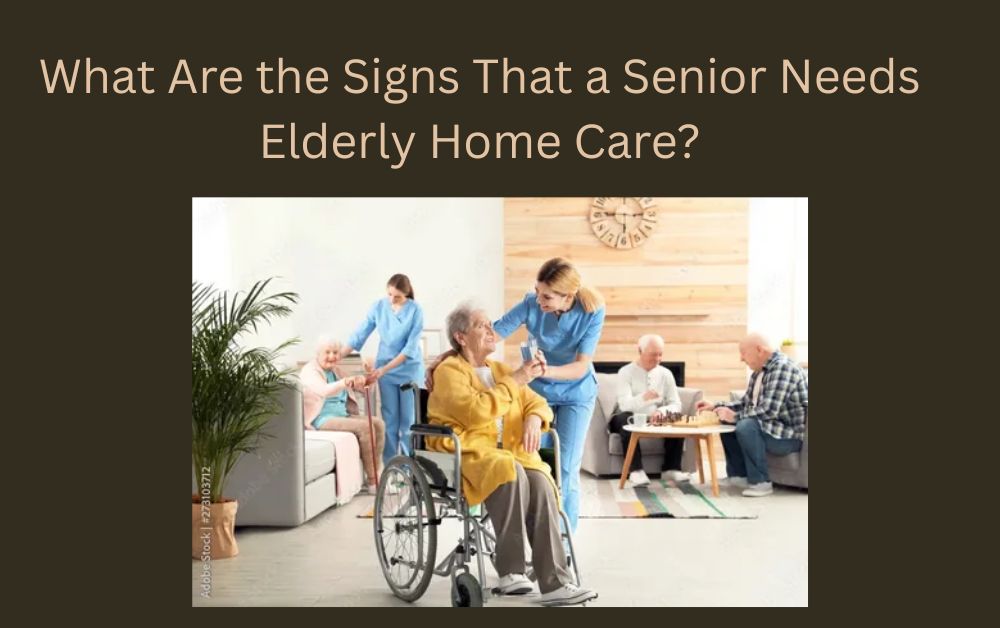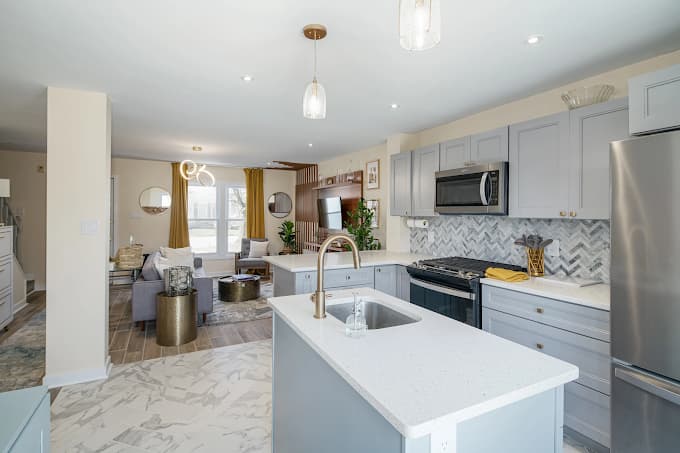Growing older is a journey we all face, and with it comes both joys and challenges. For many families, an important question arises as their loved ones age: When is the right time to consider elderly home care? Recognizing the signs that a senior may need more support is not always simple, but it is a step toward protecting their safety, health, and happiness.
In this article, we will explore the clear signs that indicate a senior might benefit from receiving elderly home care services. We will also discuss how families can carefully assess these signals and make the best decision for their loved ones.
Why Identifying the Right Time Matters
Before looking at each sign in detail, let us first understand why it’s so important to recognize these changes early.
Preventing Risks and Accidents
Seniors who continue living alone despite needing extra help face higher chances of falling, forgetting medicines, or struggling with daily activities. If recognized in time, home care can reduce such risks.
Improving Quality of Life
With professional caregivers, seniors can keep their independence while also enjoying companionship, proper meals, and better health support.
Reducing Stress for Families
Family members naturally worry about the safety and comfort of their elders. When home care begins, much of this stress is relieved, and families can focus on spending quality time together rather than only managing care duties.
Note:- Is your loved one showing signs that they may need extra care at home? Choose the trusted experts in Elderly Home Care in Dubai with Private Care Center. Our compassionate caregivers provide personalized support, medical assistance, daily living help, and warm companionship—right in the comfort of home.
Signs That Suggest a Senior May Need Home Care
Below are the most common and important signs you should watch for in your elderly loved ones.
1. Decline in Personal Hygiene and Appearance
This is often the first noticeable sign.
Difficulty Bathing or Dressing
When elders struggle to bathe, comb their hair, or dress neatly, it usually means they are finding daily tasks harder than before.
Wearing the Same Clothes Repeatedly
If your loved one is wearing the same clothes day after day, it may indicate they don’t have the energy or strength to change, or they may forget to do so.
2. Unkempt Living Environment
The way a senior manages their home often reflects their condition.
Household Neglect
Are dishes piling up in the sink? Is the laundry undone for days? Is there dust everywhere? These could show they are struggling with housekeeping.
Safety Risks at Home
A messy environment creates risks—wires on the floor, slippery bathrooms, or unattended stoves can lead to accidents. A caregiver at home can ensure the environment is clean and safe.
3. Forgetfulness and Memory Problems
A normal forgetful moment is fine, but frequent memory gaps can be serious.
Forgetting Medicines
Missing medicines or double-dosing can harm health, especially for seniors with chronic conditions.
Forgetting Appointments or Daily Needs
If they constantly miss doctor visits, leave the gas on, or misplace essential things like keys, it shows they require supervision.
4. Changes in Eating Habits
Food and nutrition reflect overall well-being.
Skipping Meals
If your loved one is not cooking or eating regularly, they might be struggling physically—or forgetting to prepare meals.
Weight Loss or Weak Appearance
A sudden drop in weight, looking thinner, or being more tired could mean they are not eating enough or not choosing the right foods.
5. Mobility Issues
Moving around safely becomes harder with age.
Trouble Walking or Using Stairs
If a senior avoids stairs or needs support even for short walks, it may be time to consider home care.
Frequent Falls or Injuries
Any fall, slip, or minor accident is a warning sign. Falls are dangerous for seniors and can cause serious long-term damage.

6. Withdrawal from Social Life
Human connection is essential at every age.
Isolation and Loneliness
If they stop meeting friends, attending community activities, or even stepping out for a walk, it could be due to fear, weakness, or depression.
Loss of Interest
When older adults lose interest in hobbies they once loved—such as gardening, reading, or watching shows—it may be due to mental or emotional fatigue.
7. Unmanaged Medical Conditions
Chronic health issues require proper attention.
Unregulated Blood Pressure or Diabetes
If they are not taking their medications properly or monitoring their health, their condition may worsen.
Skipping Doctor Visits
Avoiding regular check-ups is another red flag. Professional support at home can ensure seniors stay on track with medical needs.
8. Emotional or Behavioral Changes
Sometimes the biggest signs are emotional rather than physical.
Mood Swings or Irritability
If your loved one gets angry, sad, or upset quickly, it could be linked to frustration, loneliness, or memory issues.
Signs of Depression
Low energy, lack of joy, or constant sadness could mean they need companionship and emotional care.
9. Struggles with Daily Activities
These are also called Activities of Daily Living (ADLs).
Common ADLs Include:
- Eating meals
- Using the bathroom
- Walking inside the house safely
- Bathing or dressing independently
When elders need help with these tasks, it is a clear signal that home care may be necessary.
10. Concerns Raised by Neighbors or Friends
Sometimes family members may not notice changes because they are too close emotionally. However, neighbors, friends, or relatives who visit occasionally may notice differences in behavior, hygiene, or activity levels. If others are expressing concern, it is wise to pay attention.
How Home Care Helps with These Signs
Recognizing the signs is only the first step. The real solution comes with providing reliable and consistent care.
Personalized Care Plans
Every senior is unique. Some may need part-time caregivers for only a few hours a day, while others may need full-time support. A home care plan can be customized easily.
Safety and Supervision
Caregivers ensure there are no accidents at home. They also keep a watch on medicines, nutrition, and emotional health.
Companionship and Emotional Support
Besides physical help, having a friendly caregiver reduces loneliness and provides someone to share conversations with every day.
Peace of Mind for Families
Families can rest easier knowing their loved one is not alone and is receiving proper attention.
How to Talk to Your Elderly Loved One About Home Care
Starting a conversation about home care is often the hardest step.
Approach with Kindness
Many seniors fear losing independence. Emphasize that home care is not about control but about support.
Involve Them in Decision Making
Ask their opinions on what kind of help they would feel most comfortable with. This gives them a sense of choice.
Highlight the Benefits
Explain how a caregiver will help with cooking, cleaning, or companionship, allowing them to do what they enjoy more freely.
Common Myths About Elderly Home Care
Sometimes families delay decisions because of common misconceptions.
Myth 1: Home Care Means Losing Independence
Truth: Home care actually helps seniors live independently in their own homes for longer.
Myth 2: Home Care Is Only for the Very Sick
Truth: Even active seniors benefit from part-time help in cooking, cleaning, or companionship.
Myth 3: Nursing Homes Are the Only Option
Truth: With today’s professional home caregivers, many seniors can remain at home safely and happily.
When to Seek Professional Advice
If you are unsure whether your loved one needs home care, consulting a doctor or professional care provider can guide you. They can review health conditions, evaluate risks, and suggest the right level of assistance.
Final Thoughts
Caring for elderly loved ones takes patience, attention, and love. The signs we discussed—such as decline in hygiene, forgetfulness, mobility issues, emotional changes, and struggles with daily activities—are clear signals that a senior might need elderly home care.
Choosing home care is not about taking away freedom, but about giving back comfort, safety, and dignity. With the right support, seniors can live happily and peacefully in the place they love most—their own home.
For more insightful articles related to this topic, feel free to visit writoka



